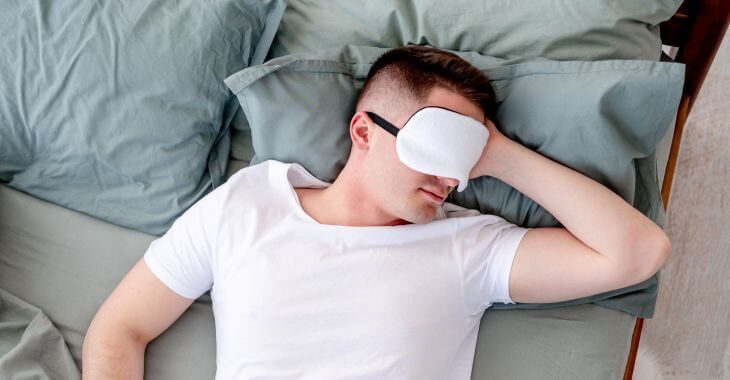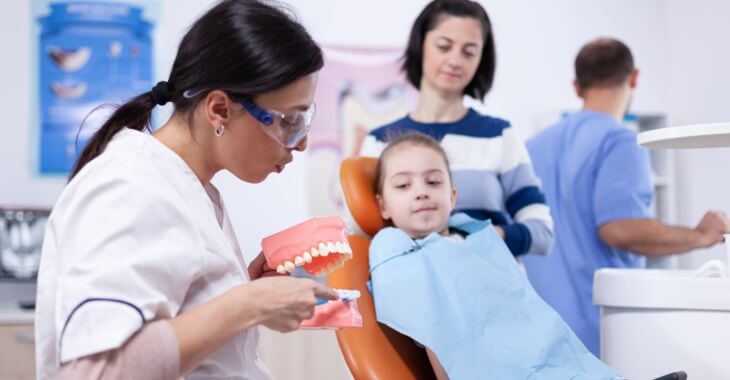How to Sleep After Wisdom Teeth Removal

Wisdom tooth extractions are a common oral surgery procedure to remove troublesome back molars. The procedure is performed as an outpatient surgery and most patients can return home to rest within a few hours of their arrival time at the dentist’s office. Once home, it is important that patients adhere to their dentist’s recommended recovery steps, including getting plenty of rest and sleep while they recover. But there are better ways to sleep to improve recovery. Here are tips on how to sleep after wisdom teeth removal surgery.
Follow Your Post-Surgery Care Instructions
Your dentist will give you specific post-surgery care instructions to improve your recovery after wisdom teeth removal. Not only can following these instructions help you heal quicker, but they can minimize your discomfort and improve sleeping after wisdom teeth removal. Most post-procedure instructions for wisdom tooth extractions will include some of the following advice:
- Use ice packs to reduce swelling and pain
- Keep clean gauze on the wound site (except when sleeping)
- Avoid any strenuous activity for the first few days of recovery
- Make sure to drink plenty of fluids but do not drink with a straw
- Do not use tobacco or nicotine products
- Only eat soft foods
- Take pain medications as needed
Make sure to adhere as closely as possible to your dental team’s post-surgery care instructions. These are meant to diminish your pain and speed the healing process. Following the care instructions can help you feel better in the hours after surgery and may help with sleeping after wisdom teeth removal surgery.
- Keep Your Head Elevated
- One of the tips on how to sleep after wisdom teeth removal is keeping your head elevated. It is important to use at least one pillow to raise your head higher to allow draining of fluid around the surgical site. Keeping your head above your heart is important even when relaxing or laying on the couch. Prop your head up or sit in a recliner while relaxing for the first few days after your wisdom teeth removal surgery and elevate your head when sleeping.
- Sleep on Your Back
- Positioning yourself on your side is the not best option when preparing to sleep after your wisdom teeth removal surgery. Although many people prefer to sleep on their side, it can put excess pressure on the surgical sites and increase swelling. Sleeping on your back for at least the first two-three nights with a stack of pillows elevating your head and upper body is the best position. This can help minimize swelling and allow better drainage if the surgical site is still oozing fluids when you go to bed.
- Remove All Gauze Before Sleeping
- You will want to use gauze to keep the surgical sites dry and clean after surgery. However, it can be dangerous to sleep with gauze still in your mouth, as it poses a choking hazard. You may want to wait to sleep and only rest for the first few hours after coming home from the dentist to allow the gauze to stay in place. Once it is time to go to sleep, carefully remove and dispose of the gauze.
- Sleep in Your Bed
- While it may be tempting to sleep on your couch or in a recliner to keep your head elevated, it may be best to sleep in your bed. You do not want your head to slip or be in an uncomfortable position that could impact your surgical sites. Your bed is a softer and safer place to sleep, and it can be more comfortable once you add extra pillows to keep your head elevated.
- Use Pain Medications
- Many people want to be tough and not use the recommended pain medications. Do yourself a favor and take some type of pain medication before you go to bed. Whether it is a prescription or OTC pain reliever recommended by your dentist, these medications can help minimize discomfort and may reduce inflammation. Not only does this help you get the sleep and rest your need, but it can improve the healing process.

How Long Do I Need to Sleep Elevated After Wisdom Teeth Removal?
In most cases, you should only need to keep your head elevated when you sleep for the first two or three days. If you are still experiencing oozing from your surgical sites, it is best to keep your head elevated until the draining stops. Make sure to contact your dental office if you have prolonged symptoms. Follow your post-surgery care instructions regarding complications and when to contact your dentist.
Now you know how to sleep after wisdom teeth removal surgery to get the rest you need for a speedy recovery. If you have any other questions regarding your post-surgery care, make sure to reach out to your dental team to get the answers you need.
The information provided on this website, including text, graphics, images, and other materials, is intended solely for informational purposes and should not be used as a substitute for professional medical advice, diagnosis, or treatment.




)